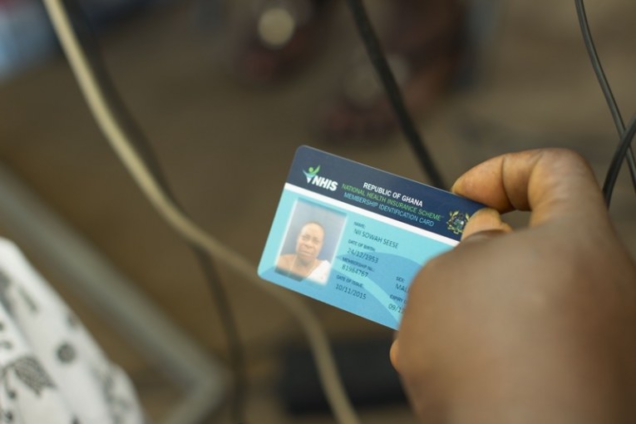Awudu (Not the real name) works with one of the Government’s Agencies as a Messenger. He has worked in this establishment for as long as 30 years or more.
The case
When Awudu joined the agency, he was happy with the benefits that came along with his work. His hospital bills got paid once he submitted it to accounts.
All he needed was to come along with receipts to prove that indeed he went for a medical treatment, and it will be paid.
This benefit did not only cover him, but it also covered his wife and three children, and it was something he really liked about his job.
Health Insurance
Then came Ghana’s National Health Insurance Scheme, at the time, all government workers were required to be enrolled unto this health scheme.
The scheme was to cater for the bills of all Ghanaians, not just government workers, meaning government workers will no longer have to submit medical claims, but also enjoy the scheme at all government and some private facilities.
Patients, therefore need to go to the hospital with their National Health Insurance Card and would be treated.
Dream or reality?
The hitherto refreshing news about the National Health Insurance Scheme soon became a mirage, when it was learnt that it could not cater for the treatment of all ailments at health facilities.
For most Ghanaians, the NHIS have not worked as expected, some illnesses are not covered by the scheme, most of the time, the needed and prescribed medication is either not available or it is not covered.
Again, there are a lot of health facilities that do not accept the National Health Insurance Card and most importantly some diseases are also not covered by the scheme.
Examples
For instance, mental health issues are not NHIS, some therapies needed by persons with disabilities, cardiovascular diseases, and liver and kidney diseases.
Almost all the “names” in health are probably not covered by the NHIS.
Some government Departments and Agencies now changed their policy directives, as employees are supposed to use the NHIS, could only afford half of the hospital bill if it was not covered by the NHIS.
Awudu’s organisation was one of such organisations that made a policy to pay half of the medical bills if the NHIS did not cover the entire cost.
Disappointment?
Unfortunately for Awudu, his wife got a kidney disease that required dialysis three times a week, how was a messenger working in a government Agency going to be able to afford the cost of dialysis on a government payroll.
He lost his wife.
Awudu who is nearing his retirement, now owes many loan companies huge amounts of monies.
How is he going to pay his debt?
In his own words, he says, “even now that I am in active service, I am simply unable to do anything with how much I am left with at the end of the month, how I will afford to service my debt when I finally retire.”
Trade Union Congress?
Many government workers have questioned why the Trade Union Congress (TUC) negotiated for half payment of medical bills.
So how does a government worker who gets ill with Kidney, Liver or cardiovascular disease take care of him or herself?
Who is thinking about the proper healthcare of a government worker at a time when a lot of people think that the health insurance has failed? Perhaps it is time to look at the specific conditions of service for some of these government agencies and prioritise the employee healthcare and wellbeing.
Latest Stories
-
Joe Lartey Sr: A voice that brought life to Ghana sports and beyond
18 mins -
Australians call for tougher laws on violence against women after killings
2 hours -
African Development Council establishes mission in Benin for Francophone countries
2 hours -
Okyeame Kwame reveals his secret to longevity in music industry
3 hours -
Youthful-looking 60-year-old woman qualifies for Miss Argentina contest
3 hours -
Ejisu By-Election: Campaign heats up as NPP holds final rally ahead of Polls on Tuesday
3 hours -
Rwanda plan: Irish government wants to send asylum seekers back to UK
3 hours -
Ice cubes now cost more than bread and milk in parts of Mali
5 hours -
Titanic gold pocket watch sells for £900,000
6 hours -
Elon Musk in China to discuss enabling full self driving – reports
6 hours -
Foreign Affairs Ministry advises against travelling to Northern Mali
6 hours -
After dating him for three years, I proposed to my husband
6 hours -
Beatrice ‘Bee’ Arthur tackles plastic pollution through artistic exploration
7 hours -
Hundreds turn out for Luv FM/Telecel Fitness Walk in Kumasi
7 hours -
Ghana Post launches Asantehene Commemorative Stamp
7 hours

